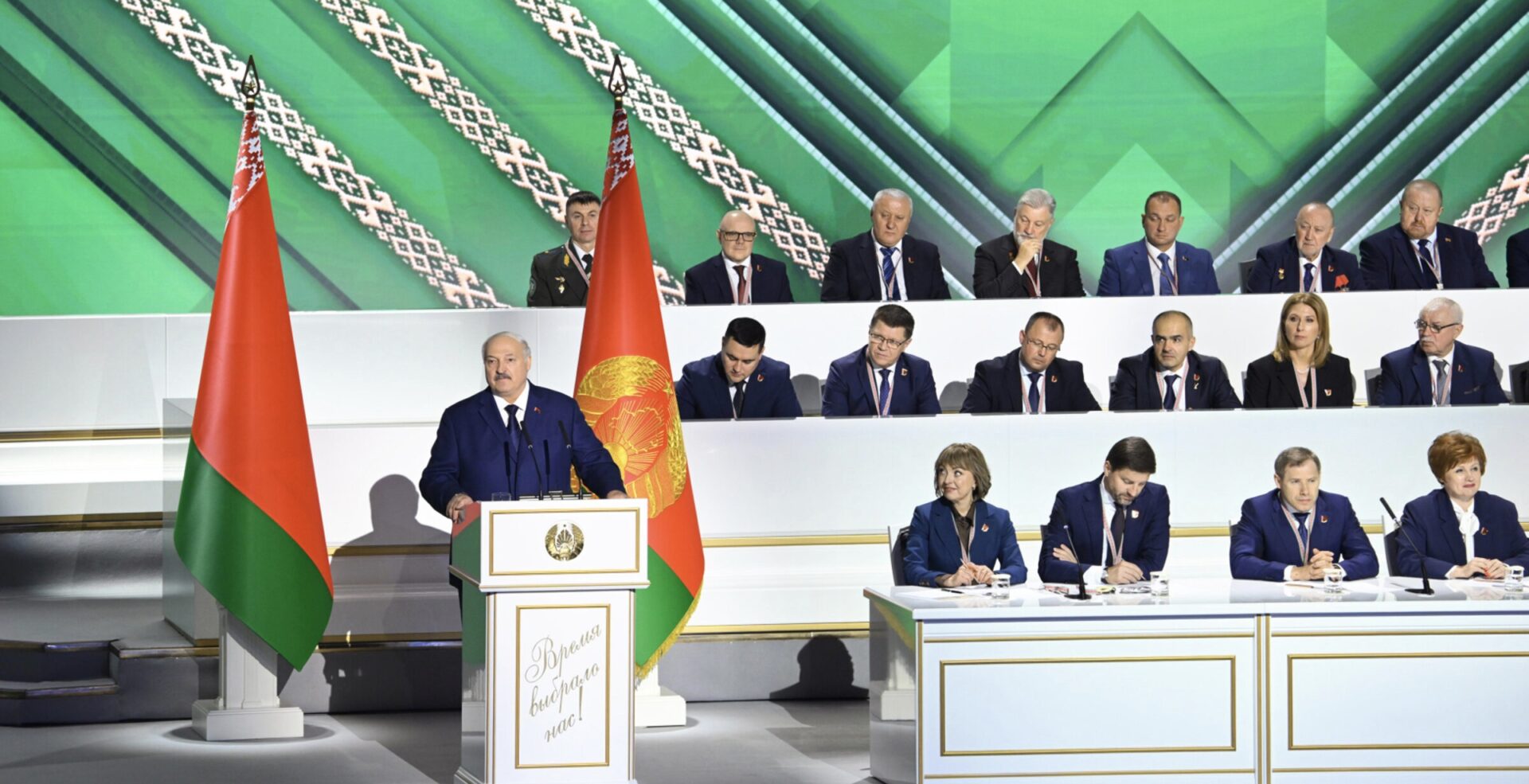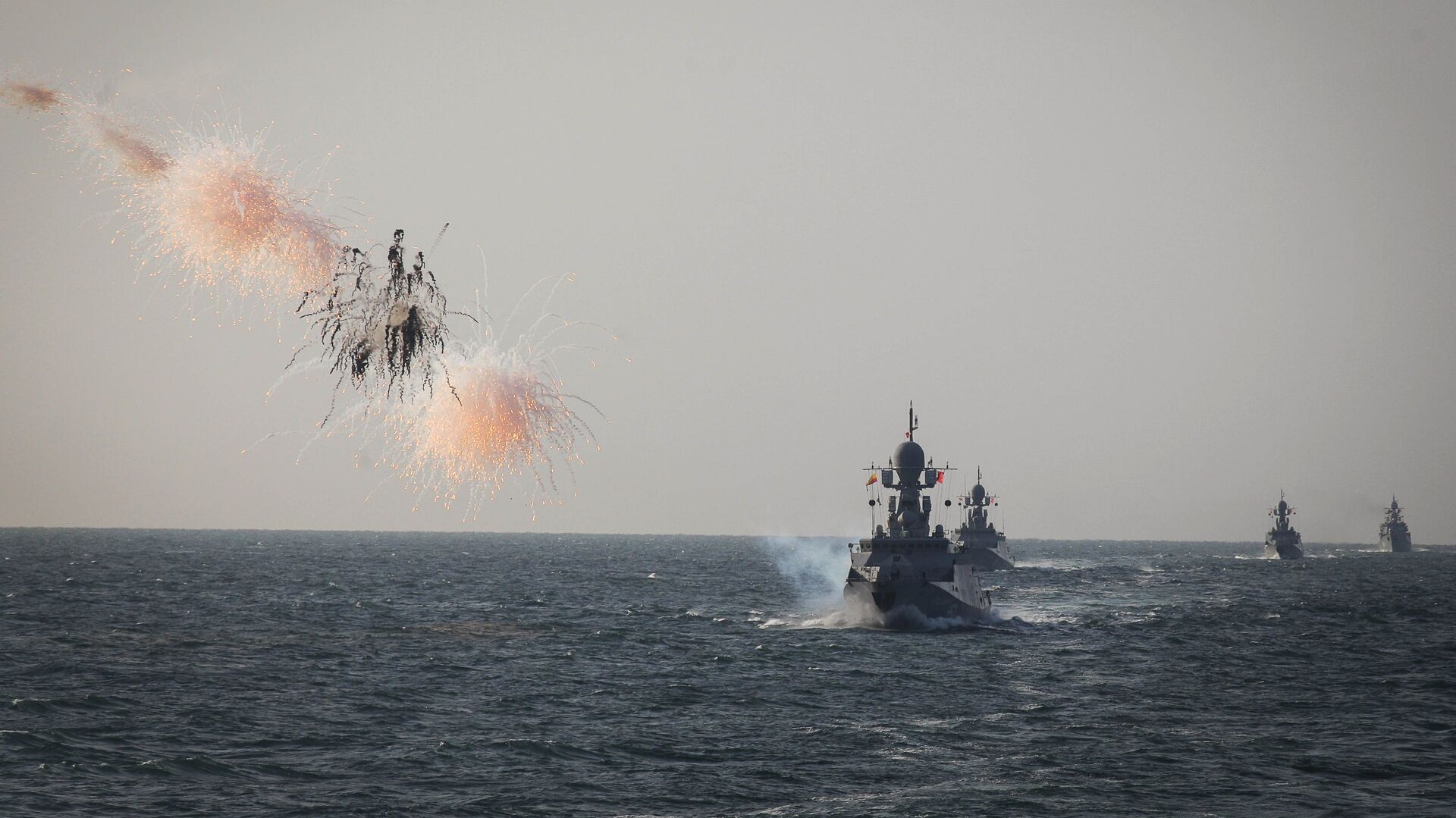THE GROWING DANGER FOR THE RUSSIAN PRESS
THE GROWING DANGER FOR THE RUSSIAN PRESS
The Growing Danger for the Russian Press
by Maryanne Ozernoy
With the recent victory of the Russian Communist party, Russia takes another step back from the road to democracy. Impoverished and angry, Russians can only dream of the days of subsidized milk, low state-controlled rents, and guaranteed minimum income, all products of a structured communist regime. The patriotic-nationalistic campaign of the Communist Party of the Russian Federation (KPRF) promises all this and more. Ironically the KPRF may achieve its goals not by improving the economy, but by "putting the unbridled press into its place." (1) With the growing influence of the KPRF, there is increasing fear among Russia’s democratic journalists, that the Communists’ success may foreshadow a ban on the free press.
The KPRF’s success can be attributed to its exploitation of Russia’s growing sense of nationalism. KPRF is marketing the idea that Russia is sick of her inferiority to the West. Open threats and anti-Semitic and anti-western insinuations directed at democratic journalists, characterize the neo-communists’ entry into the sixth Duma. The concern of many journalists was expressed in interviews on Russia’s official radio station, the "Voice of Russia". In one review, "Voice of Russia" cites Russian journalist Anna Politkovskaya who commented, "to our greatest shame such words as kike press (i.e. pro-democratic) or non-kike press (i.e. communist and nationalistic) and other anti-Semitic terms are becoming a part of the everyday slang of politicians elected into the new Duma." (2) On top of this, KPRF’s promise to restrain Russia’s pro-democratic press is being welcomed by a population that does not trust Yeltsin’s media and yearns for the bleak simplicity of the communist press.
The fear that the press will finally be nationalized, and controlled by a "patriotic front" of Communists and Zhirinovsky’s LDPR, is well-founded.
l) The Communists have already managed to organize public pressure on Russia’s press. Traditional Russian xenophobia in the neo-communist press is injecting an anti-Western spirit into the Russian media at large. The Communist press exploits old phobias from the golden days of the communist witch hunts for rootless cosmopolitans (a Stalinist phrase used in anti-Semitic campaigns of the 50s). This time, however, the communist political provocation has a new direction, aimed at the free press and the image it presents of the Western states;
2) Democratic journalists who served on the Committee on Information Policy and Communications haven’t been reelected to the Duma and the "red-brown" coalition of the Communists and the LDPR will more than likely be responsible for Russian legislation on information and the press.
Tributes to Stalinist Propaganda
Attacks on freedom of speech and the democratic press are well-known traits of the KPRF, but their propaganda campaign is taking a new, openly threatening form because of its nationalistic Stalinist rhetoric. Surprisingly, it is welcomed by a Russian population that is accustomed to demagogues and often buys into the primitive, but emotionally charged rhetoric of Communists.
The prime targets of the Communist campaign are Glasnost and its chief architect, Aleksandr Yakovlev, the democratic press (dempressa), and the West. The well known communist and nationalistic writer Yurii Bondarev cannot forgive Yakovlev’s so-called TV gang, or "the crafty Ostankino journalists, "that they often insult Russian "national authorities." Bondarev also accuses this "gang" of hating everything the communists consider "pure, traditional and moral,", i.e., not poisoned by the Western-American "cultural garbage" that has flooded half the world. (3) According to another advocate of this anti-western campaign, Valentin Soloukhin, there is an attempt by "Yakovlev’s media" to destroy the health of the Russian nation, as it "purposely advertises…medication containing mercury" in order "to ruin the nations’ health." (4) Rumors of secret killers injecting poison into random victims on Soviet streets were planted into the impressionable minds of the Russian public by the KGB during the years of the Cold War. This time the communist "conspiracy" myth looks plausible because it is being backed up by what looks like a rational explanation. Killers are named and their motivation is indentified: capitalist greed cloaked in the mantle of Western medicine. A new version of "Stalinist Jewish doctors plot" is directed against the democratic media, because the press does not propagate Marxism-Leninism. However, buckling under to public pressure, even the liberated democratic press has started to cash in on this new Stalinist trend. The popular TV show Itogi recently broadcast a program that stunned Russian public opinion. The show accused the Moscow International Institute of Medical Biology of buying aborted human embryos from Russian women for medical experiments. They also accused a German drug firm of selling abortion drugs in Russia that are banned in the West. (5)
The Russian press immediately joined the broadcast media in supporting this idea. They turned the moral and criminal aspects of the problem into a political issue. They criticized unethical western drug firms for "penetrating" the Russian market with "banned inhuman technologies" and charged Western medical scientists and Western states with involvement in a conspiracy against the Russian population. According to the press, the West is now developing new methods of using tissue from aborted embryos in Russia specifically to take advantage of the lack of laws in Russia regulating these practices. This is an especially sensitive topic in Russia because of the dramatic drop in life expectancy and low birth rate. In reality, the scandal is hypocritical. Russia is famous for her neglect of human health and human life. Official Russian statistics reveal that there are three million abortions per year in Russia, and every eighth abortion is carried out without anesthesia. In fact, the accusation made against the West resembles those made against Jewish doctors during the "the doctors’ plot" of Stalin’s time. The uniform reaction of the press in this scandal is also reminiscent of that era.
It is clear that the main purpose of such loud anti-western campaigns is to create a instill hatred towards "a common enemy." Behind this lies the calculation that by giving Russians a sense of nationalism, the public will be blind to their quickly shrinking liberties. The Communists hope to once more make Russia a closed society.
Is Glasnost Reversible?
The newly elected communists in the Duma are seeking to head the Committee on the mass media and control the legislative initiative on information. Russia’s democratic journalists are concerned that the communists’ victory would enable the red-brown opposition to amend the new law on the media and to nationalize Russia’s telecommunication system. (6) Pro-democratic journalists, who participated in the development of Russia’s law on information, established the Duma Committee on Information Policy and Communications mainly to protect the free flow of information. Now their places will be taken by Communists and LDPR journalists, who are practically the only professional journalists in the Duma. In such a situation, no democratically minded journalist will have a chance to oppose communist-nationalist policies.
There are several newly elected Communists who have set out to control "the terror of a democratic press." (7) One of them is Yurii Ivanov, a lawyer famous for his extreme intolerance to all non-communist publications. His anti-democratic antics are echoed by newly-elected V. Chikin, the chief editor of the leading communist newspaper Sovetskaya Rossiya, and the chief editor of the communist Pravda Rossii, G. Seleznev, who was elected as Speaker of the new Duma. They will be aided by representatives of the communist provincial press and nationalists from the LDPR. Among them are V. Philatov, the press-secretary of the LDPR and member of the editorial staff of the nationalistic magazine Molodaya gvardia, and LDPR journalists from the Yuridicheskaya gazeta. It is not difficult to imagine that the patriotic front in the Duma will unite in an attempt to end the era of Glasnost and impose formal censorship. This new anti-Glasnost information policy would most likely enjoy mass support. These are the same citizens who back at the Stalin epoch, to justify their past lives and a return to communism.
Conclusion
Observers explain the idealization of Stalinism in Russia in terms of nostalgia. But what is the Russian public nostalgic about? What does it idealize about the past? Communist ideas cannot function without uniformity, and uniformity can be achieved only through total conformism. This conformism requires total control of the media. It is naive to hope that the communist system can be improved by sacrificing its own basic principles. As for communist leaders, old or new, they never hesitate to institute the idea of total control over free speech and other human rights. The belief in the KPRF transition to social-democracy does not pass the test of experience. The Russian public is nostalgic precisely for the socialist system. From this point of view, it is the communist system that is for sale in the upcoming presidential elections and not individual leaders.
The communists of Stalin’s time did precisely what neo-communists are trying to achieve today. They conflated Marxism with nationalism and chauvinism in order to tighten "the screws" of the system after a short period of relative openness to the West: the second World War and the subsequent integration of "capitalist" Eastern Europe into the communist system. The nationalistic "Eurasian" geopolitical concept helps new communists to upgrade Stalin’s chauvinism. (8) The form might be new, but Communist strategy remains the same to unify the population by introducing conformism in everything.
The idealization of the Stalin era by most citizens is a springboard for communist actions. The KPRF, now the most influential party in Russia, already has a political platform and a strategy for the reinstatement of the Great State and its complete control over the life of the Russian citizens. The mass media is their primary target. Even if they fail to push through new legislature on the information policy and the media, they will continue to find new ways to control the "unbridled press." The Communists will not rest until they monopolize the information system.
Recent history has turned Russia into a battlefield once more. Unpopular economic and social reform policies are connected with Khrushchev’s "thaw" and the end of the Stalin era; with architects of Glasnost such as Aleksandr Yakovlev and with dissidents, and defenders of human rights, such as Sergei Kovalev. And only good things are remembered about the barbaric period of Stalin’s rule. Russia is polarized and divided, this time not by the imperial, but by the immediate Soviet past. The struggle for control over the media reflects this split. By controlling the press, communists have a better chance of winning the presidential elections. A victory like that would signify the end of constitutional development, the re-establishment of Sovety (the formal Soviet consulting body), and the introduction of arbitrary law. This counterrevolution might be irreversible.
NOTES:
1. Voice of Russia, January 9, 1996. This slogan was used with success by the Communists in their electoral campaign to the Duma.
2. Ibid.
3. Y. Bondarov: “Get Up and Go.” Sovetskaya Rossiya, No. 152, December 23, 1995, p.4.
4. V. Soloukhin: “Don’t Let Them Kill You,” Sovetskaya Rossiya No. 152, December 23, 1995, p.4
5. Voice of Russia, January 9, 1996.
6. Anna Politovskaya: “And They Would Dictate Us What to Write and What to Say,” Obshchaya gazeta
7. Y. Bondarov: “Get Up and Go.” Sovetskaya Rossiya, No. 151, December 21, 1995, p.2
8. See the discussion in Maryanne Ozernoy: “Neo-Communist Ethnic Politics: Multi-Ethnic Fundamentalism,” Prism, January 12, 1996
Dr. Maryanne Ozernoy is a Professor and a Research Scientist at George Washington University.


